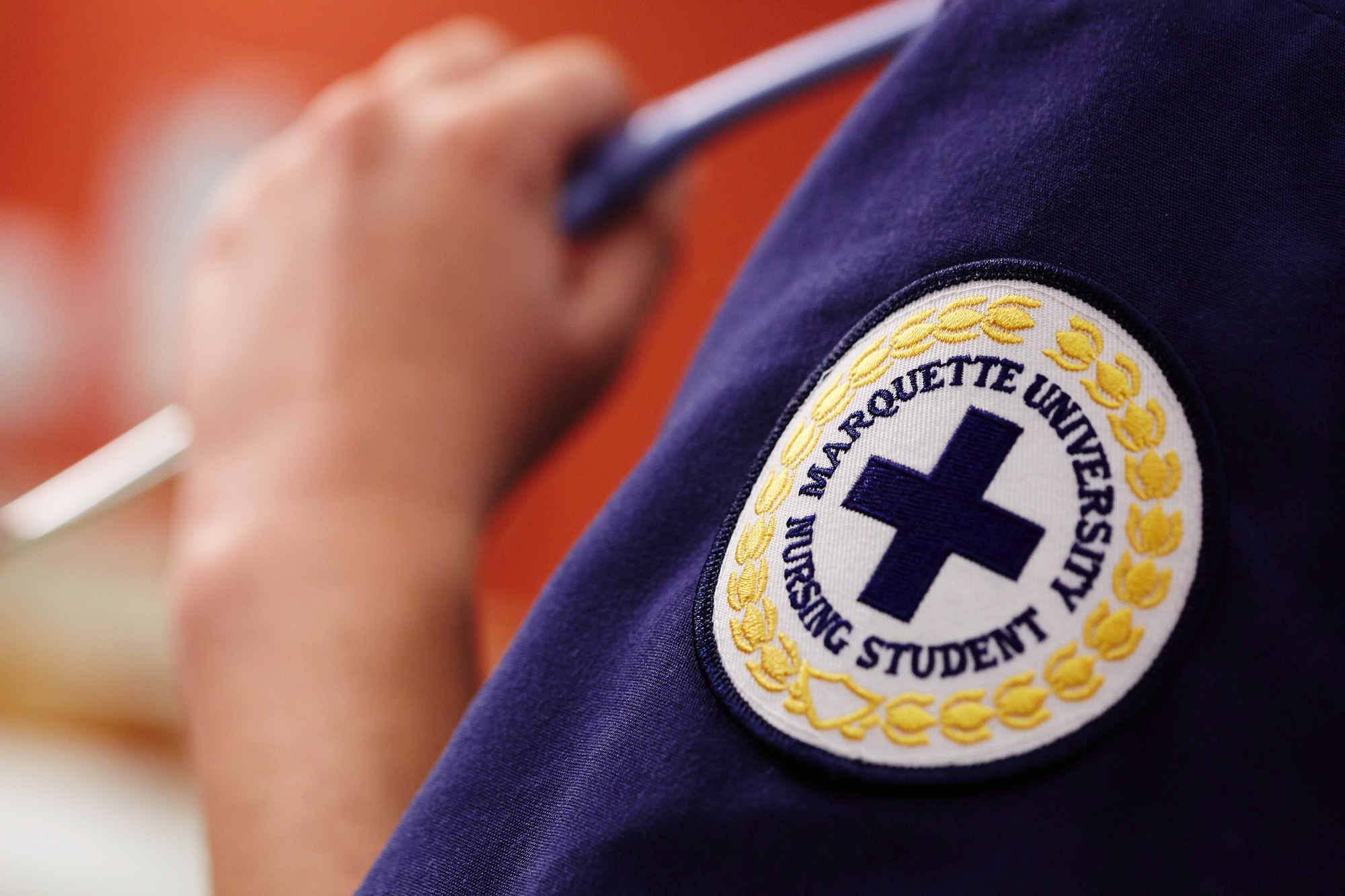
The College of Nursing at Marquette University has been awarded a grant of nearly $1 million from the U.S. Department of Health and Human Services’ Health Resources and Services Administration to create a new program and provide student scholarships to strengthen the eldercare workforce.
The Health Resources and Services Administration (HRSA) grant, totaling more than $975,000 over the course of two years, will support the formation of a Nursing Workforce Diversity-Eldercare Enhancement — or “NWD-E2” — program and provide scholarships to nursing students from underrepresented backgrounds seeking careers in eldercare. The NWD-E2 program, which will operate in partnership with the Wisconsin Geriatric Education Center, the Milwaukee VA Clinic Network and the VA Home Base Primary Care program, aims to diversify and boost the eldercare workforce in underserved rural and urban communities.
The program will enhance the Bachelor of Science in Nursing curriculum with new eldercare content and resources, such as online modules, webinars and telehealth visits. It will also coordinate academic, clinical and community partnerships to foster connections with older adults living in rural and underserved areas, promote the development of student expertise in eldercare and encourage future eldercare education, scholarships, training and employment opportunities for B.S.N. graduates.
“The goal of the NWD-E2 program is to uniquely transform the eldercare system by targeting the needs — particularly the disparities related to access and delivery of care — present within underserved communities, while simultaneously benefiting students from disadvantaged backgrounds,” said Dr. Terrie Garcia, NWD-E2 project director and coordinator of workforce diversity in the College of Nursing. “Furthermore, the underlying social justice mission of this project commits the College of Nursing to growing nursing workforce diversity and serving vulnerable populations beyond the grant period, which is a powerful and inspirational premise in the higher education space.”
A portion of the HRSA grant will be awarded as scholarships and stipends to eligible nursing students. Scholarship recipients will commit to a two-year program of eldercare training, beginning as sophomores this year and continuing as juniors in the 2021–22 academic year. In addition, a select clinical cohort of up to eight students will participate in a new clinical rotation, providing home-based primary care to elderly veterans in rural and urban communities.
Dr. Stacy Barnes, associate professor of nursing and director of the Wisconsin Geriatric Education Center, said the college is “excited about the grant and for the opportunity for the college to expand its eldercare educational offerings, as geriatrics is a sector of health care that is greatly important, yet often not prioritized in health profession programs. This new grant is an incredibly valuable resource that will create new possibilities for nursing students, as well as a stronger eldercare workforce, which is much needed.”
Dr. Janet Wessel Krejci, dean of the College of Nursing, said the grant underscores the efforts of the university and the College of Nursing to address areas for improvement within the health care system and better serve diverse communities.
“This grant and this new program will bring about advantages for students and patients alike, now and into the future,” Wessel Krejci said. “It also supports workforce diversity, which is one of the college’s priorities because a more diverse network of nurses will lead to better health care experiences and outcomes.”
The HRSA grant and the NWD-E2 program build on an existing nursing workforce diversity project that served nearly 100 selected B.S.N. students during the 2019–20 academic year.
